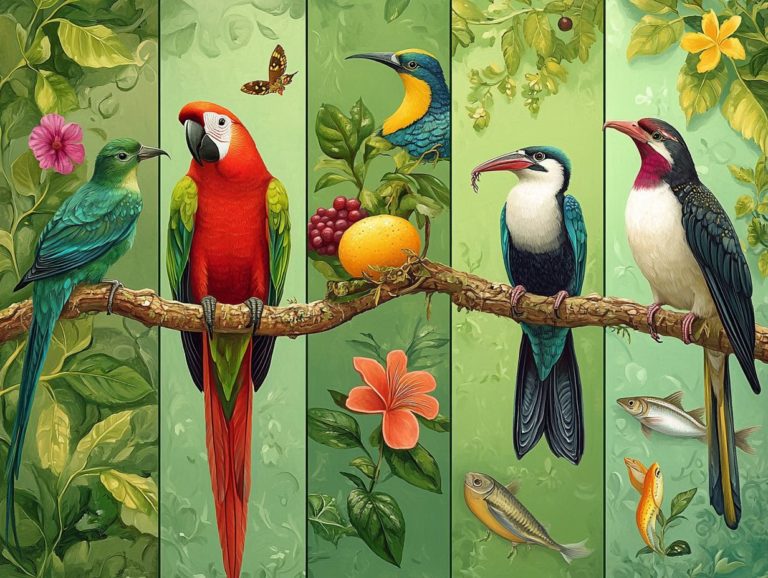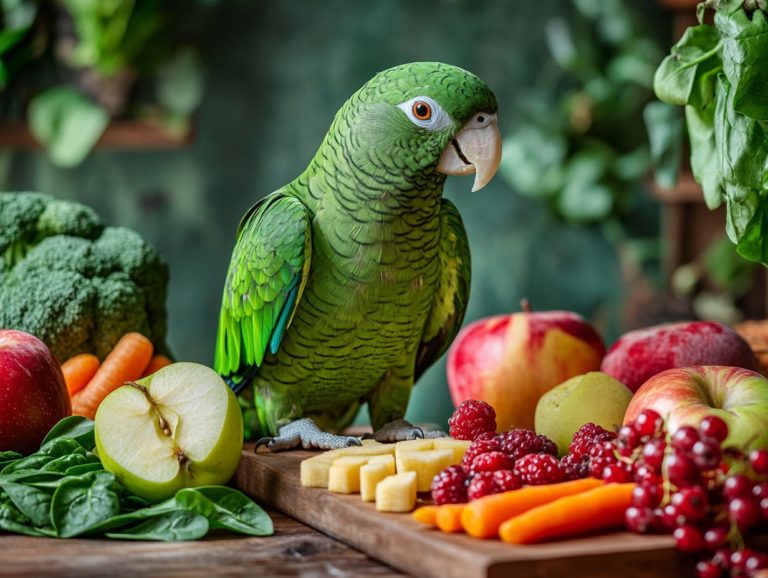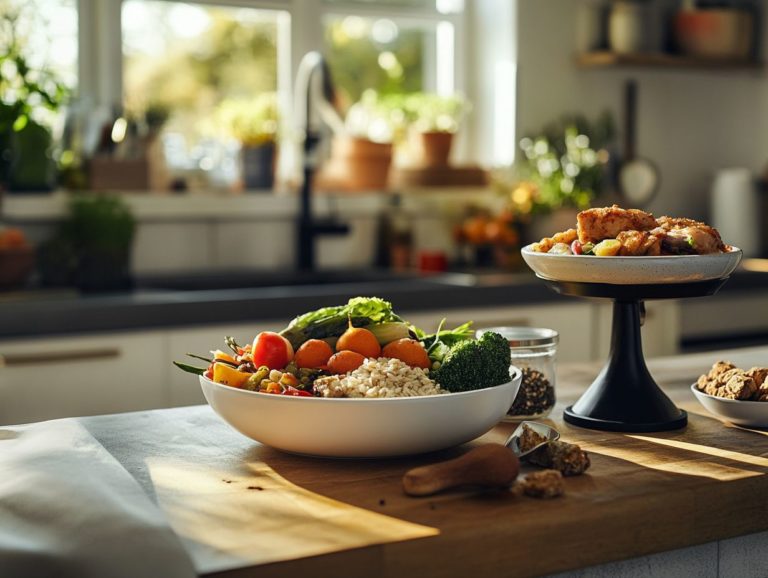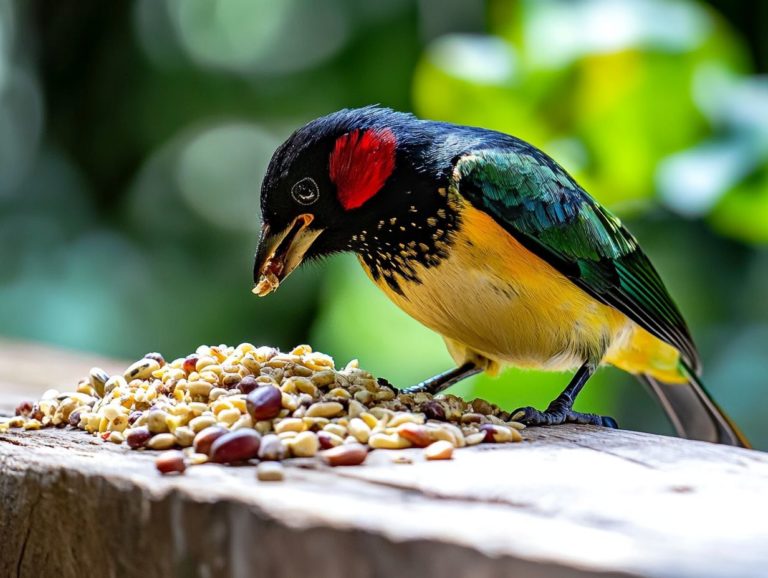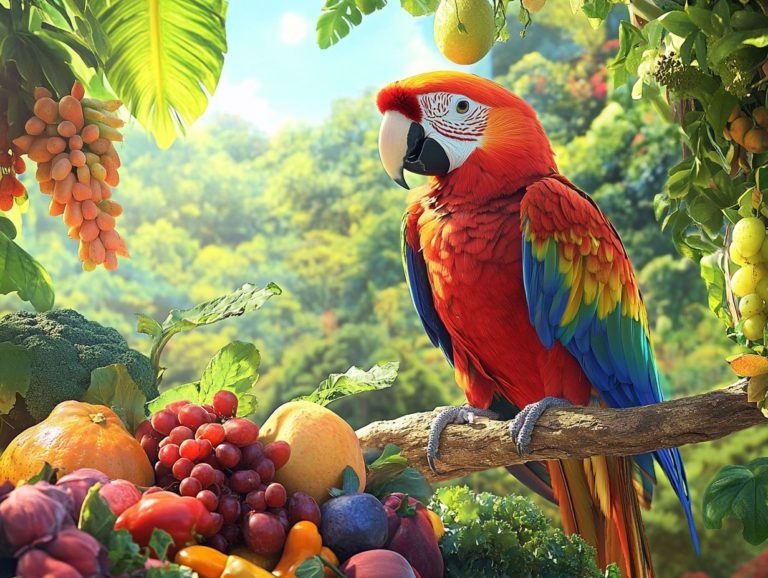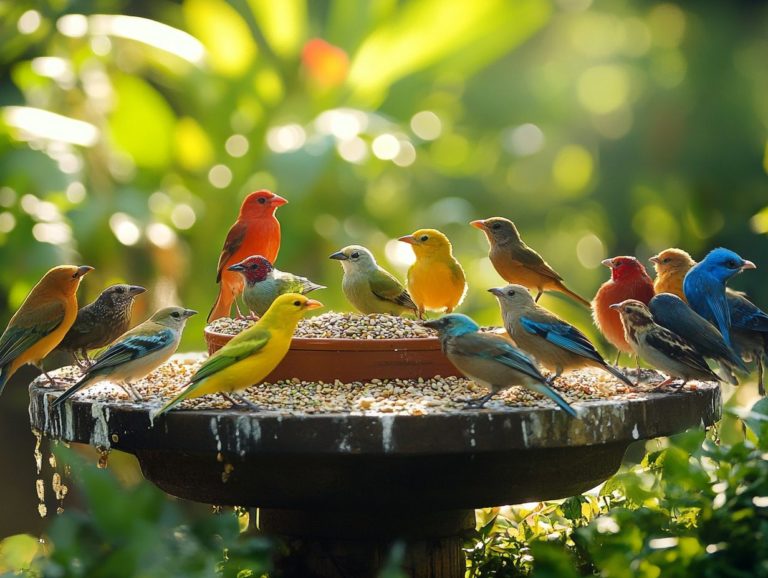Best Vegetables for Cockatiels: A Guide
Feeding your cockatiel a balanced diet is essential for their health and happiness, and adding vegetables is essential.
This guide delves into the significance of including the right veggies in your bird s meals, covering everything from safe options to effective preparation techniques. You ll discover the ideal frequency and portion sizes for serving vegetables, as well as the myriad benefits they offer.
This guide highlights common mistakes to avoid, ensuring that your feathered companion flourishes on a vegetable-rich diet.
Contents
- Key Takeaways:
- Why Vegetables are Important for Cockatiels
- Choosing the Right Vegetables
- Preparing Vegetables for Cockatiels
- Feeding Vegetables to Cockatiels
- Benefits of a Vegetable-Rich Diet for Cockatiels
- Common Mistakes to Avoid
- Frequently Asked Questions
- What are the best vegetables for cockatiels?
- Why are these vegetables considered the best for cockatiels?
- How should I introduce vegetables to my cockatiel’s diet?
- Can cockatiels eat all types of vegetables?
- How often should I offer vegetables to my cockatiel?
- What are some tips for feeding vegetables to cockatiels?
Key Takeaways:
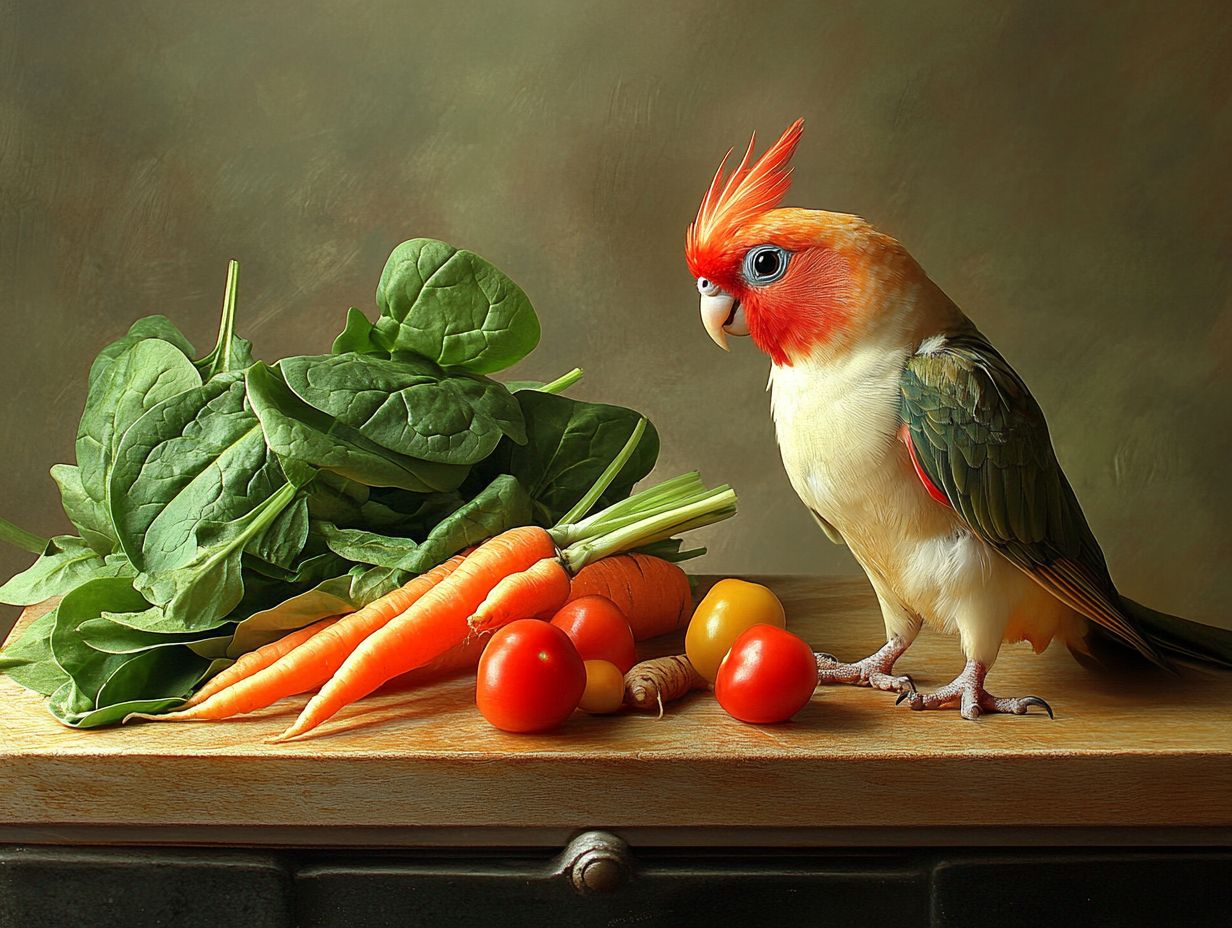
- Include a variety of vegetables in your cockatiel’s diet to provide essential nutrients and promote their overall health.
- Consider factors such as safety, freshness, and variety when choosing vegetables for your cockatiel.
- Proper preparation and feeding techniques, as well as avoiding common mistakes, can help your cockatiel reap the benefits of a vegetable-rich diet.
Why Vegetables are Important for Cockatiels
Recognizing the important role of vegetables in your cockatiel’s diet is essential for their overall health and well-being. Vegetables are packed with essential vitamins and minerals that bolster their immune system, boost energy levels, and create a balanced diet.
By incorporating a colorful array of vegetables, you ensure that your cockatiel receives the necessary nutrients to thrive. Furthermore, a vegetable-rich diet can help avert potential health issues and bad reactions, making it imperative for you to prioritize their vegetable intake in your feeding routines.
Choosing the Right Vegetables
Selecting the ideal vegetables for your cockatiel requires a keen understanding of what is both safe and beneficial for their specific dietary needs. Make sure to offer a colorful variety of vegetables that deliver balanced nutrition, ensuring the overall well-being of your feathered companion.
By choosing safe options, you can prevent any bad reactions. Incorporating vegetables abundant in vitamins and minerals will enhance their health and vitality.
Factors to Consider
When you’re selecting vegetables for your cockatiels, several important factors come into play to ensure they enjoy a healthy and balanced diet. Consider how good the vegetables are for your cockatiel, their safety, and the delightful variety they can bring to your cockatiel’s meals.
Opt for vegetables that are rich in vitamins and minerals; these nutrients are essential for maintaining strong immune health and ensuring vibrant plumage. Safety should also be at the forefront of your choices making sure the vegetables are free from pesticides, which are harmful chemicals used in farming, and harmful chemicals is crucial for protecting your feathered companion.
By offering a colorful mix of textures and flavors, you not only provide visual stimulation but also encourage healthy eating habits, transforming mealtime into an exciting experience. By paying attention to these critical factors, you can significantly enhance your cockatiel’s overall quality of life and longevity.
Safe and Unsafe Vegetables for Cockatiels
Identifying which vegetables are safe and which are not for your cockatiel is essential for maintaining their health and avoiding any bad reactions. While many vegetables can serve as nutritious additions to their diet, some can pose health risks. It s vital for you to know which vegetables to incorporate and which to steer clear of to provide a safe and balanced diet for your feathered friend.
For instance, leafy greens like kale and spinach are fantastic choices, brimming with vitamins A and K that contribute to strong bones and overall vitality. On the other hand, certain vegetables, such as avocado, is toxic and can lead to serious health issues. Understanding these details not only ensures your cockatiel s well-being but also adds variety to their meals, making mealtime a delightful experience.
By closely monitoring their diet, you can help maintain a healthy weight and vibrant feathers while minimizing the risk of digestive problems that can arise from poorly chosen foods.
Preparing Vegetables for Cockatiels
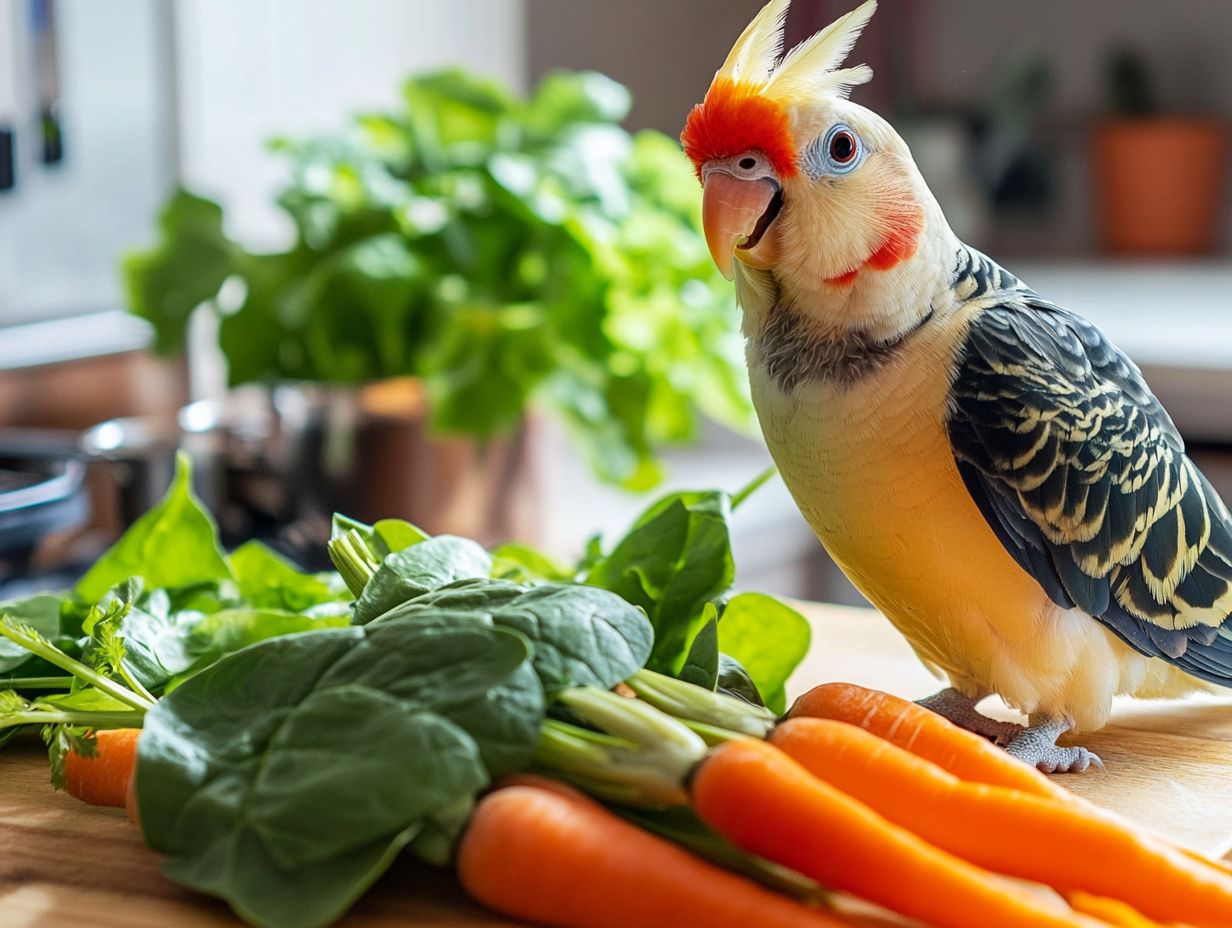
Preparing vegetables for your cockatiels is essential for ensuring they enjoy a healthy and safe diet. By employing proper preparation methods such as thorough washing and precise cutting techniques you can eliminate contaminants and enhance the palatability of the vegetables for your feathered friends.
Investing time in the correct preparation of these nutritious options not only elevates their feeding experience but also promotes their overall well-being.
Washing and Cutting Techniques
To ensure that the vegetables you offer your cockatiels are safe, employing proper washing and cutting techniques is essential. This process protects your feathered companions from harmful residues and enhances their ability to digest these nutritious delights.
Rinsing vegetables under cool running water is crucial for removing dirt and microorganisms. This step helps maintain food safety.
Using proper cutting methods, like dicing or julienning, ensures optimal portion sizes and encourages better feeding habits.
By following these crucial preparation steps, you can maximize the health benefits of vegetables, ensuring your pets receive the essential vitamins and minerals they need for a vibrant and lively existence.
Feeding Vegetables to Cockatiels
Feeding vegetables to your cockatiel requires a nuanced understanding of the ideal frequency and portion sizes necessary for a balanced diet. It’s crucial to include different kinds of vegetables in their meals, as this not only provides essential vitamins and minerals but also keeps mealtime interesting for them.
By carefully monitoring portion sizes and how often you feed them, you can significantly enhance your cockatiel’s overall well-being and help avert potential health issues.
Frequency and Portion Sizes
Determining the right frequency and portion sizes for feeding vegetables to your cockatiels is essential for their health and dietary balance. By regularly including vegetables in their meals, you ensure they receive the necessary nutrients while preventing overeating.
Incorporating a variety of colorful vegetables boosts their nutritional value and makes mealtime more exciting. It’s generally advisable to offer fresh veggies daily, but you should adjust timing and quantity to fit their overall diet, which includes pellets and seeds.
A good strategy is to serve a small selection, making up about 10-15% of their daily food intake to avoid overwhelming them. Pay attention to their eating habits notice their preferences and any leftovers to fine-tune their portions.
Regular check-ins with a vet can provide additional guidance on adjusting your feeding practices, ensuring optimal health and preventing obesity in these charming companions.
Benefits of a Vegetable-Rich Diet for Cockatiels
A vegetable-rich diet offers a wealth of benefits for cockatiels, greatly enhancing their health and nutrition. By including a diverse array of vegetables in their meals, you ensure they receive crucial vitamins and minerals that can bolster their immune system, elevate their energy levels, and promote overall well-being.
Understanding these benefits can motivate you to make vegetables a top priority in your cockatiel’s diet, ultimately leading to a happier and healthier companion.
Improved Nutrition and Health
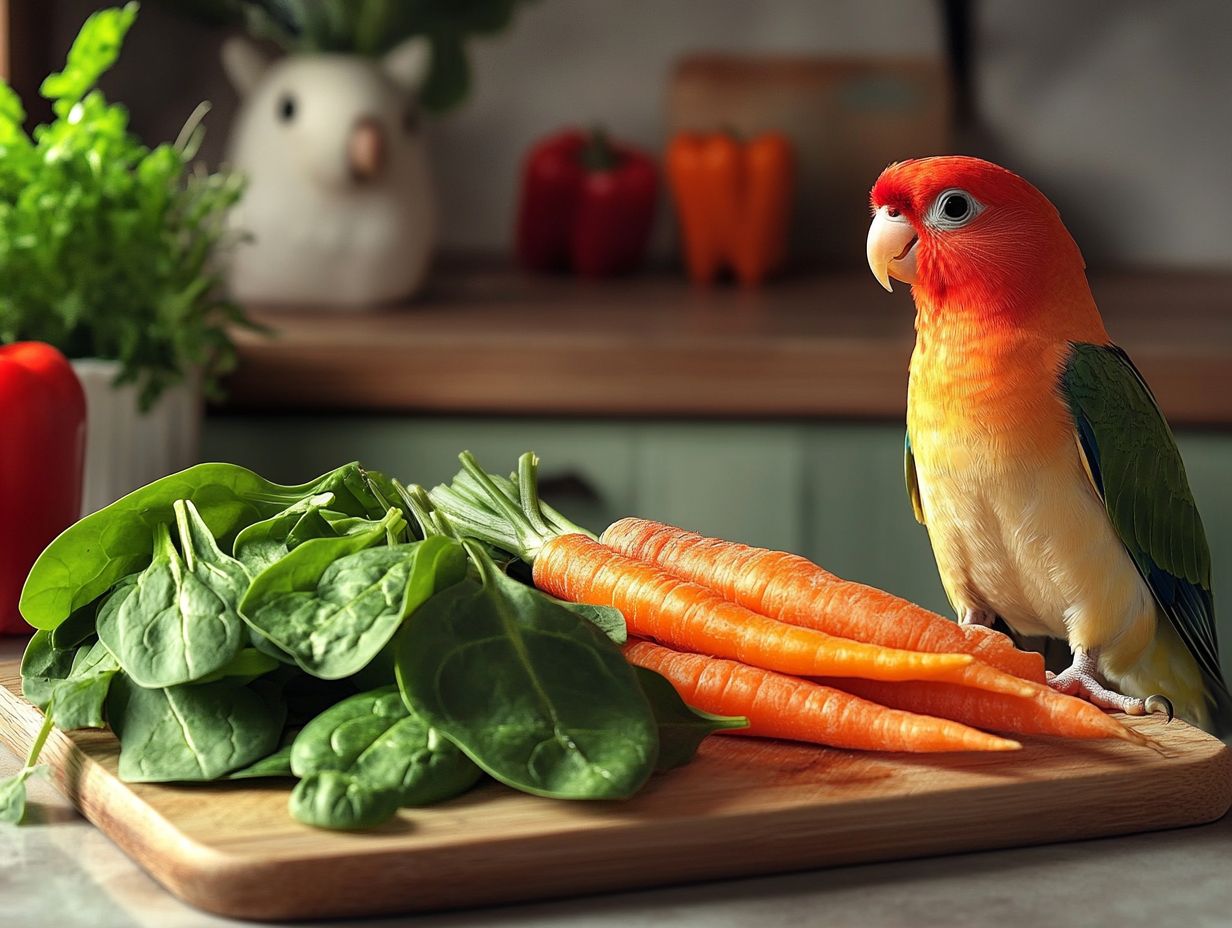
Incorporating a diverse selection of vegetables into your cockatiel’s diet can significantly enhance their nutrition and overall health. These vibrant foods are rich in essential vitamins and minerals that play a critical role in their well-being. A balanced diet featuring these nutritious options is vital for ensuring your cockatiel thrives in its environment.
For example, leafy greens like kale and spinach are powerhouses of vitamins A, K, and C. These vitamins support healthy vision, strong bones, and robust immune function. Carrots and sweet potatoes shine with their high beta-carotene content, a nutrient that helps improve vision and skin health. Don’t overlook broccoli, as its calcium is crucial for strong bones and optimal muscle function.
By consistently offering a colorful array of vegetables, you can elevate your companion’s nutritional profile while encouraging natural foraging behaviors. A colorful diet keeps your cockatiel happy and thriving!
Common Mistakes to Avoid
Avoiding common dietary mistakes with cockatiels is essential for their health and overall well-being. Overfeeding, opting for unhealthy foods, and failing to provide variety can lead to negative reactions and health issues.
By understanding these pitfalls, you can ensure that your cockatiels maintain proper dietary habits and prevent potential health complications. Your vigilance in this area will significantly contribute to their vibrant and healthy lives.
Overfeeding and Other Potential Pitfalls
Overfeeding cockatiels is a common mistake that can lead to significant health complications. It s crucial for you to monitor their food intake meticulously and vary their food with the seasons to maintain a balanced diet. By steering clear of overfeeding and being aware of other potential pitfalls, you can greatly enhance your cockatiels’ overall health.
This involves providing a diverse range of appropriate foods, including seeds, pellets, fruits such as apples, bananas, and mango, and vegetables, while being mindful of portion sizes. If you indulge them with excessive treats or high-fat seeds, it can limit their motivation to eat healthier options. Your cockatiels could face the risk of obesity, paving the way for issues like liver disease and cardiovascular problems.
Neglecting to offer fresh produce, such as seasonal fruits and vegetables can deprive them of essential vitamins and minerals, particularly vitamins A and C. This can lead to deficiencies that may impact their feathers and immune system.
Grasping these dietary nuances helps prevent unintended weight gain and cultivates a thriving and joyful environment for your charming feathered companions. Training your cockatiel to enjoy a variety of foods is crucial.
Frequently Asked Questions
What are the best vegetables for cockatiels?
The best vegetables for cockatiels include dark leafy greens such as kale, spinach, and broccoli, as well as carrots, sweet potatoes, and bell peppers. For more detailed information, check out this guide on cockatiel diet to ensure optimal health.
Why are these vegetables considered the best for cockatiels?
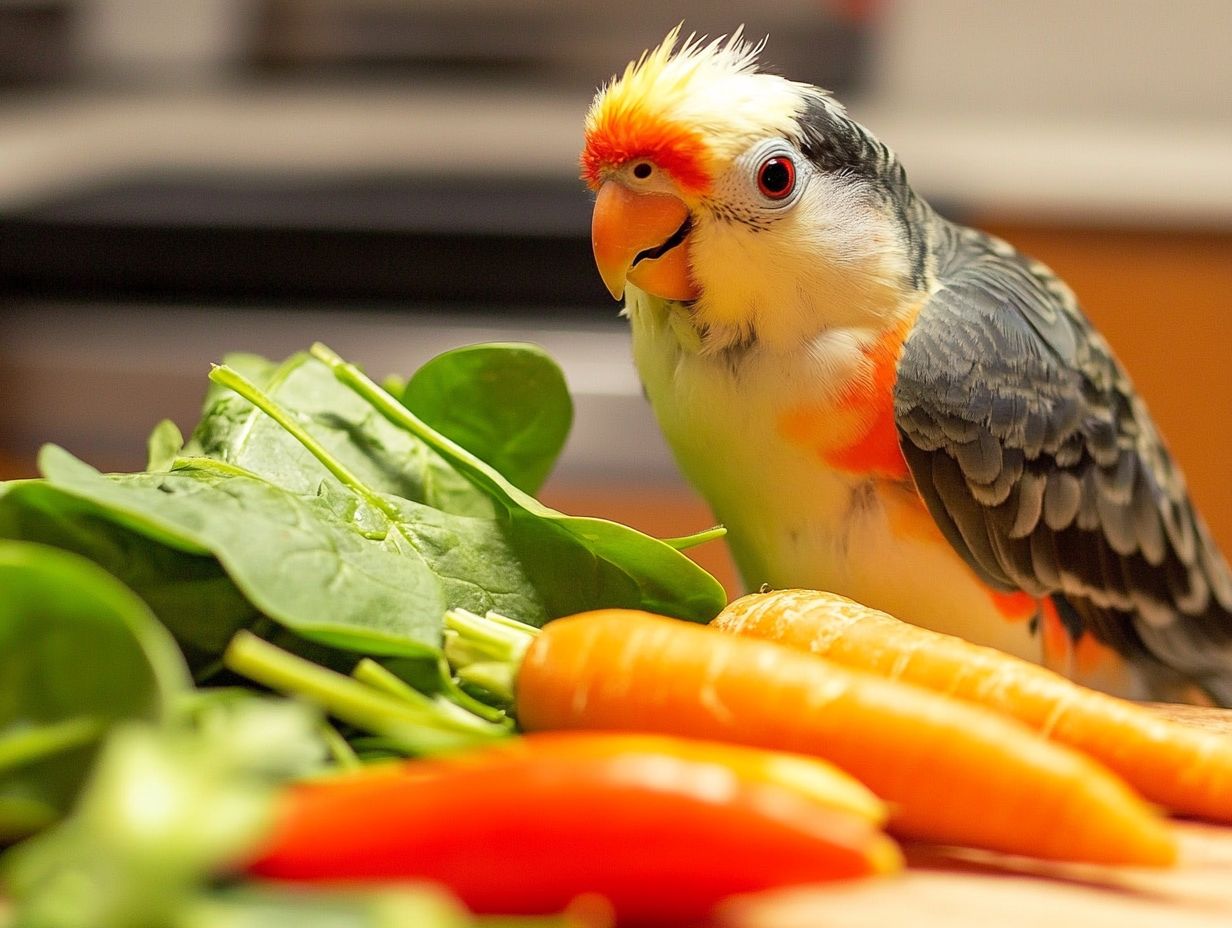
These vegetables are rich in essential nutrients, vitamins, and minerals important for the health and well-being of cockatiels. They also provide a variety of textures and flavors, making mealtime more enjoyable for your feathered friend.
How should I introduce vegetables to my cockatiel’s diet?
It’s important to introduce vegetables gradually to your cockatiel’s diet. Start by offering small amounts of one type of vegetable and observe your bird’s reaction. If they seem hesitant, try offering it in different ways, such as chopped, grated, or pureed. Be patient, as it may take some time for your bird to get used to new foods.
Can cockatiels eat all types of vegetables?
No, there are certain vegetables that are toxic to cockatiels and should be avoided. These include avocados, onions, garlic, and mushrooms. It’s important to do your research and consult with a veterinarian before feeding any new vegetable to your cockatiel.
Consult your vet for personalized advice before making major changes to your pet’s diet!
How often should I offer vegetables to my cockatiel?
Offer vegetables to your cockatiel every day. Limit their intake to 20% of their total food.
Mix it up with pellets, seeds, and fruits for a happy, healthy cockatiel!
What are some tips for feeding vegetables to cockatiels?
Wash vegetables thoroughly before serving. Avoid any that have been treated with pesticides.
Remove any uneaten vegetables after a few hours to prevent spoilage. Offer different types of vegetables for variety.

